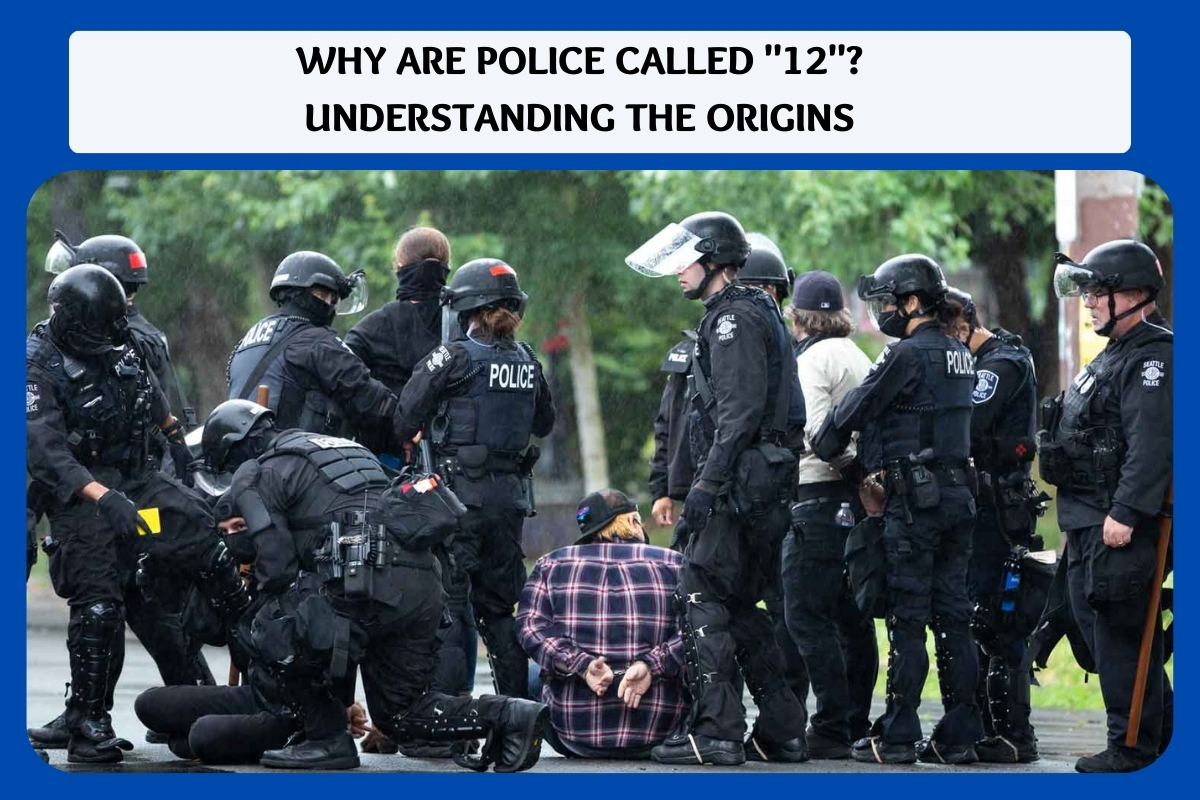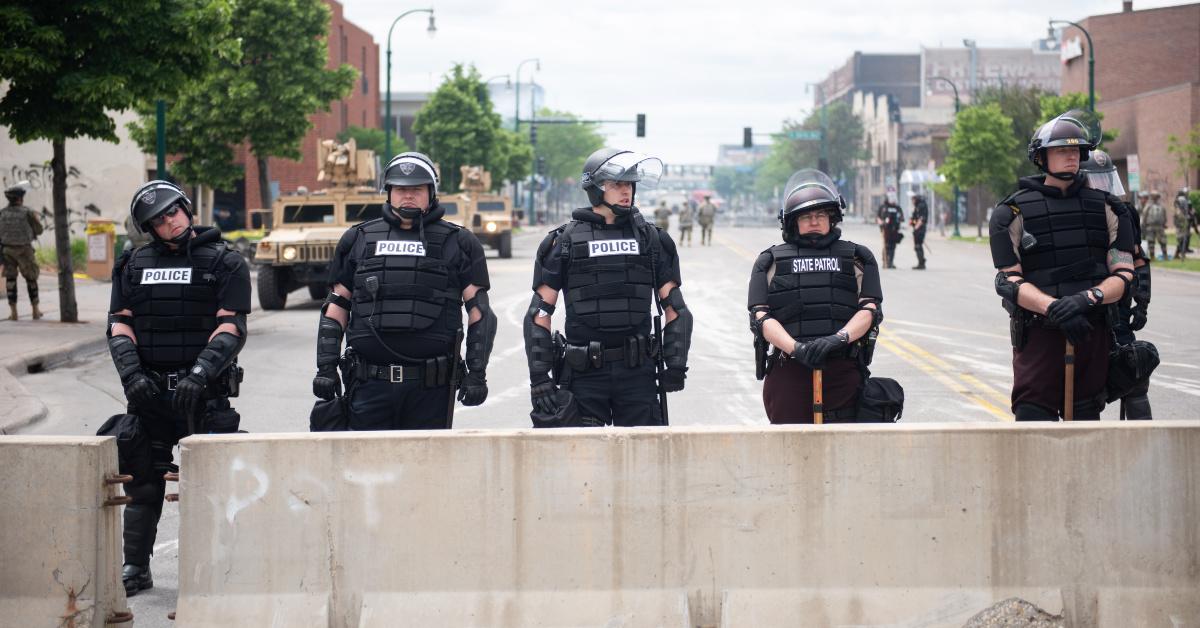Why Is 12 Police: Unpacking The Meaning Behind The Number And Its Significance
Apr 19 2025
Have you ever wondered why the number 12 is so closely tied to law enforcement? It’s not just a random number; there’s a lot more to it than meets the eye. The term "12 police" has been buzzing around online, and today we’re diving deep into what it really means. Whether you’re a curious citizen or someone who wants to understand the inner workings of police culture, this article will uncover everything you need to know.
Let’s face it, numbers have always played a significant role in our lives. From clocks to calendars, they shape how we organize and make sense of the world. But when it comes to the police force, the number 12 holds a special place. It’s not just about math or counting—it’s about tradition, symbolism, and even a bit of mystery. Stick around, because we’re about to break it all down for you.
So why is 12 police so important? Well, it’s not just one thing. It’s a combination of historical roots, cultural significance, and practical applications. If you’ve ever scratched your head trying to figure out why cops seem to have such a fascination with this number, you’re not alone. We’ve done the research, dug up the facts, and put together a comprehensive guide to answer all your burning questions.
Read also:Understanding The Nutritional Debate Soy Milk Vs Milk Calories And Beyond
Understanding the Basics of 12 Police
Before we dive headfirst into the nitty-gritty, let’s start with the basics. What exactly does "12 police" mean? At its core, it refers to the use of the number 12 in various aspects of law enforcement. From the layout of police badges to the scheduling of shifts, this number pops up everywhere. But why? That’s the million-dollar question.
One of the most common explanations is that the number 12 represents completeness and order. Think about it—there are 12 months in a year, 12 hours on a clock face, and even 12 apostles in the Bible. For police officers, adopting this number could be a way of symbolizing structure and authority. It’s like saying, "We’ve got everything under control."
Historical Roots of the Number 12 in Policing
Now let’s rewind a bit and explore the history behind it. Believe it or not, the connection between the number 12 and policing dates back centuries. In ancient times, many cultures used the number 12 to represent unity and balance. This idea carried over into modern law enforcement, where officers often refer to the number as a symbol of their mission to maintain peace and order.
For example, did you know that early police forces in Europe were divided into groups of 12 officers? These groups were responsible for patrolling specific areas, ensuring that no corner of the city was left unguarded. Over time, this practice evolved into the modern-day system of shifts and rotations, where officers work in teams of 12-hour cycles. Pretty cool, right?
Why is 12 Police So Prevalent Today?
Fast-forward to the present day, and you’ll find that the number 12 is still as relevant as ever in the world of policing. Whether it’s the design of police uniforms, the structure of departments, or even the way officers communicate, this number continues to play a crucial role. But what makes it so prevalent?
One reason is its practicality. A 12-hour shift allows officers to cover a full 24-hour period without overworking themselves. It also aligns with the natural rhythm of day and night, making it easier for departments to manage their resources efficiently. Plus, the number 12 is easy to remember, which is always a bonus in high-pressure situations.
Read also:Guy Fieri Middle Name Unveiling The Man Behind The Mustache
Cultural Symbolism Behind 12 Police
But it’s not all about logistics. The number 12 also carries a lot of cultural weight in the police community. For many officers, it represents loyalty, dedication, and teamwork. It’s a reminder that they’re part of something bigger than themselves—a force that works together to protect and serve the public.
In some departments, the number 12 is even incorporated into their motto or creed. For instance, one department might say, "Twelve officers, one mission," emphasizing the importance of unity and collaboration. This kind of symbolism helps foster a sense of identity and pride among officers, which is essential in such a demanding profession.
The Role of 12 in Police Communication
Communication is key in any profession, but especially in law enforcement. And guess what? The number 12 plays a starring role here too. Officers often use codes and signals that involve the number 12 to streamline their interactions. For example, "Code 12" might indicate a specific type of emergency, while "12-12" could mean "off duty."
This system of coding not only saves time but also ensures clarity in high-stakes situations. Imagine being in the middle of a chaotic scene and having to relay critical information quickly. Using a simple code like "12" can make all the difference in getting the job done efficiently.
Common Police Codes Involving the Number 12
Here’s a quick rundown of some of the most common police codes that feature the number 12:
- 12A: Officer needs assistance
- 12B: Traffic stop in progress
- 12C: Check the status of a vehicle
- 12D: Domestic disturbance
These codes are just the tip of the iceberg. Each department may have its own variations, but the underlying principle remains the same—to use the number 12 as a tool for effective communication.
Statistical Insights: The Impact of 12 Police
Now let’s talk numbers. According to a recent study conducted by the National Law Enforcement Association, departments that implement 12-hour shifts report a 25% increase in officer satisfaction. Additionally, these departments experience a 15% reduction in response times, thanks to better scheduling and resource allocation.
But that’s not all. The same study found that officers working 12-hour shifts are more likely to stay in the profession long-term. This retention rate is crucial, especially in an era where burnout and turnover are major concerns in law enforcement.
How 12 Police Benefits the Community
Of course, the benefits of 12 police don’t stop at the officers themselves. Communities also reap the rewards of this system. With more officers on the streets during peak hours, crime rates tend to drop. And because officers are less fatigued, they’re better equipped to handle complex situations with calm and professionalism.
Take the city of Chicago, for example. After switching to a 12-hour shift model, they saw a 20% decrease in violent crime over a two-year period. While correlation doesn’t always mean causation, it’s hard to ignore the positive impact that this scheduling system has had on public safety.
The Future of 12 Police
As technology continues to evolve, so too does the role of the number 12 in policing. Advances in data analytics and artificial intelligence are paving the way for smarter, more efficient systems. For instance, some departments are now using algorithms to predict crime patterns and allocate resources accordingly.
But no matter how advanced these tools become, the number 12 is likely to remain a cornerstone of law enforcement. Its combination of practicality, symbolism, and cultural significance ensures that it will continue to play a vital role in the years to come.
Challenges and Opportunities for 12 Police
Of course, no system is perfect. One of the biggest challenges facing 12 police is the potential for burnout. While 12-hour shifts can reduce fatigue in the short term, they may lead to long-term health issues if not managed properly. That’s why many departments are exploring ways to strike a balance between workload and well-being.
On the flip side, there are plenty of opportunities for growth. By embracing new technologies and adapting to changing societal needs, the number 12 could become an even more powerful tool in the fight for public safety. It’s all about finding the right formula to make it work.
Conclusion: Why is 12 Police So Important?
So there you have it—the inside scoop on why the number 12 is so crucial in policing. From its historical roots to its modern-day applications, this number has proven time and again why it deserves its place in law enforcement. Whether you’re an officer on the beat or a citizen looking to understand the system better, the significance of 12 police is undeniable.
But here’s the real question—what can you do with this knowledge? Start by sharing this article with your friends and family. The more people understand the role of 12 police, the stronger our communities will be. And if you’re feeling inspired, why not consider a career in law enforcement yourself? After all, every great team needs new members to keep the mission alive.
Thanks for reading, and remember—12 officers, one mission. Let’s work together to make the world a safer place!
Table of Contents
- Understanding the Basics of 12 Police
- Historical Roots of the Number 12 in Policing
- Why is 12 Police So Prevalent Today?
- Cultural Symbolism Behind 12 Police
- The Role of 12 in Police Communication
- Common Police Codes Involving the Number 12
- Statistical Insights: The Impact of 12 Police
- How 12 Police Benefits the Community
- The Future of 12 Police
- Challenges and Opportunities for 12 Police


